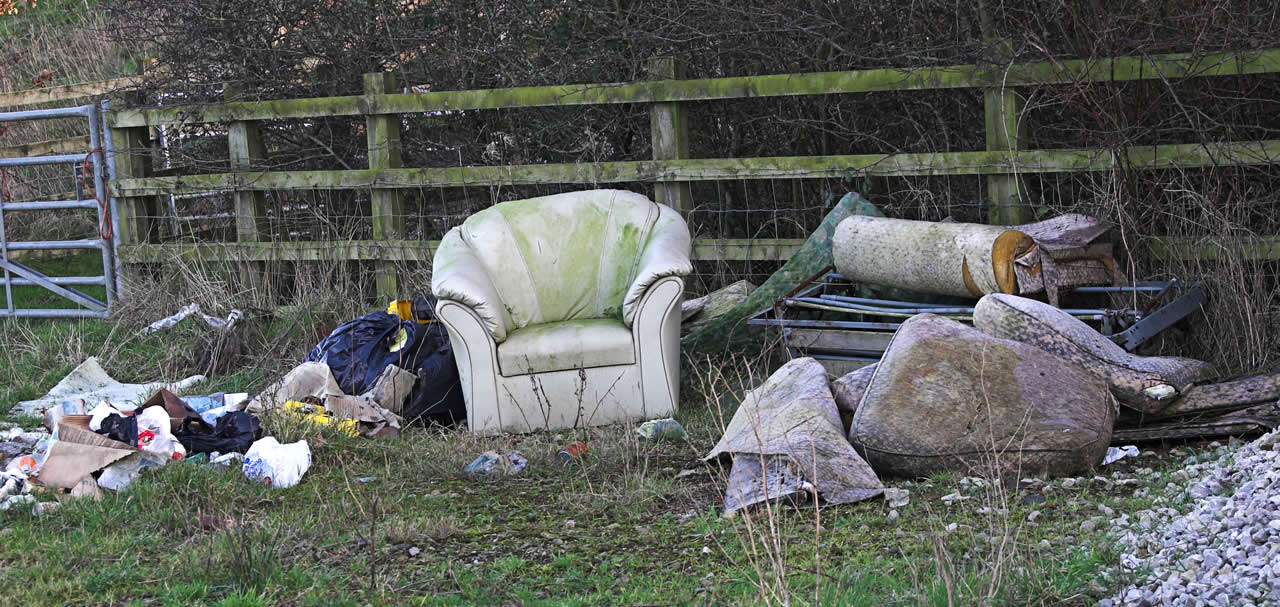A recent report making the news in most of Sussex and Kent’s local newspapers has highlighted the growing problem of fly-tipping. The story is prompted by recently released figures from DEFRA (the Department for the Environment, Food and Rural Affairs) claiming that around one million flytipping incidents were dealt with by councils across England from 2016 to 2017.
Locally in Eastbourne, there were 473 cases of fly-tipping which amounted to a total cost of over £19,000. Lewes fared slightly better with 147 cases costing about £11,000 and Mid Sussex figures came in at 324 cases, costing £35,000. The estimated overall cost to taxpayers in the UK was a whopping £58million.
Domestic Waste Incidents
Fly-tipping is a growing problem across the UK as the cost of dumping our waste continues to increase. Approximately two-thirds of fly-tipping cases involve domestic waste that is thrown out on to the streets by householders. We’ve all seen those fridges, cookers and mattresses that all too often get dumped locally with no thought given to the cost of clearing the mess up. Sadly, we’ve seen a rise of 8% from the previous year, suggesting that the problem is actually getting worse. Traders who refuse to dispose of rubbish in the right way are also thought to contribute to the problem, after cashing in on the recent festive spending spree in December.
In general terms, our roads and highways are the most likely place to get hit, accounting for around half of all the incidents reported and January is statistically the worst time of year for these events. As you’d expect, early January is the time of year when we all have an excess amount of waste to get rid of. We replace old items with the shiny new ones we recently received as gifts, we have large Christmas trees that are bulky and difficult to dispose of; not to mention all the packaging, wrapping and uneaten food we don’t need.
Problems for farmers
Fly-tipping is also an ongoing problem for the farming community. As farmers need to keep entrances to their fields accessible, they often leave gates open for easy access and this is a magnet for fly-tipping. Add to this the seclusion that most country lanes enjoy, and you’ve got a slam dunk opportunity for the illegal dumping of rubbish. In fact, the latest figures from DEFRA show that councils have spent more than £4.5m annually cleaning up the South East alone, and that’s just on land owned by the council. The poor farmers have to foot the bill themselves when it takes place on their own private land and they can even be prosecuted if the rubbish dumped in their field leads to other related problems such as damage to the environment.
Alan Sinclair, a farm insurance specialist, is quoted as saying:
“With many authorities looking at introducing charges for bulky waste and organic waste collections and charging for dumping waste at council-run tips, there is a fear that fly-tipping incidents on farmland will increase.”
South East Figures
According to the figures, there were around 80,000 cases of fly-tipping in the South East between April 2016 and March 2017 and the cost for dealing with this nightmarish number is estimated to be in the region of £4.5million.
